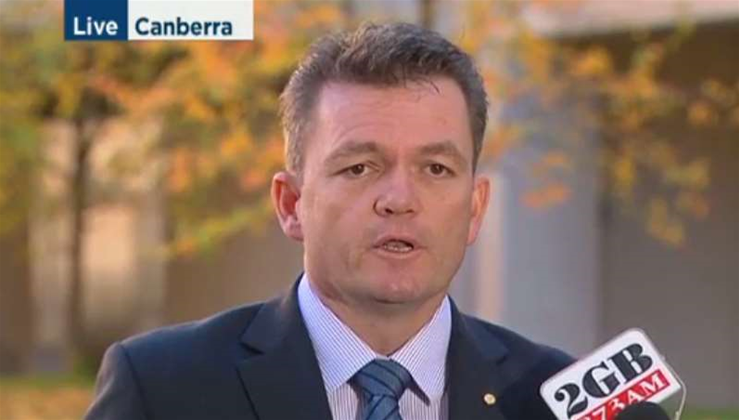Australian Federal Police commissioner Andrew Colvin has denied his force's raids on Labor offices last night were politically influenced by the Coalition government.

Police raided the office of Labor senator Stephen Conroy and the homes of two staffers for Opposition Communications Minister Jason Clare last night following a referral from NBN Co related to a series of leaked internal documents about the company's operations.
The Labor Party has claimed the timing of the raids - which came six months after the NBN's original complaint on December 9 - were politically motivated to damage Labor during the federal election campaign.
However, Colvin said the timing was "completely determined" by the AFP in line with the status and progress of the investigation.
"... not by any external factors and not by any government influence," Colvin said.
The federal government and the opposition were notified after the raids commenced yesterday, Colvin said. He confirmed an NBN staff member had accompanied police officers on the raids to help identify the documents.
The AFP is currently unable to access the seized documents, however, after the Labor party claimed they are covered by parliamentary privilege. Conroy sits on a Senate committee investigating the operation of the NBN.
The documents will now be lodged in the Senate and the parliament will decide whether to afford the files parliamentary privilege status. The AFP is also interviewing NBN staff about the leaked documents.
Shadow Attorney-General Mark Dreyfus said while he accepted Colvin's explanation, there were "serious questions" about why a government agency had "pursued the leaks in the way that it has" during an election campaign.
"What pressure did Mr Turnbull put on NBN Co to make this referral to the police?" Dreyfus asked this morning.
“What we need to know is, what did the PM or his ministers, or their staff, have to do with the commencement of this investigation and what do they know about that?
"The NBN Co is not independent. It is a government-owned enterprise. ... the NBN Co answers to the government."
Dreyfus' comments echo those made by colleagues including Opposition Minister Bill Shorten and Labor senators Anthony Albanese, Penny Wong and Tony Burke.
Burke told ABC's 7.30 last night that the government had influenced NBN Co to act on the leaks where it hadn't taken similar steps in leaks of sensitive cabinet documents from the national security committee.
"There's no doubt that the documents that came from the NBN caused immense damage to Malcolm Turnbull when they showed the cost blowout of the NBN, the fact that it was slower, the fact that it was going to be delayed," Burke said.
"I make no criticism of the AFP at all. I simply know that when there have been leaks, even from the national security committee of this government, when there have been government staffers walking around [this] building handing out cabinet-in-confidence documents, the government hasn't previously acted on referrals to the AFP."
Prime Minister Malcolm Turnbull said the first he had heard of the NBN AFP investigation was yesterday after the raids commenced. He criticised the Labor Party for "attacking the integrity" of the AFP.
Four separate documents have leaked out of NBN since November last year.
A February leak of an internal progress report revealed the NBN was running behind on its fibre-to-the-node rollout and that costs per connection were rising.
In November and December, two separate leaked documents revealed NBN was considering overbuilding the degraded Optus HFC network, and that it is facing a remediation bill for Telstra's copper of ten times higher than it originally expected.
Further leaked documents in March detailed NBN's plans to deploy skinnier fibre to address expensive duct blockage problems with existing cables.


_(22).jpg&h=140&w=231&c=1&s=0)
_(20).jpg&h=140&w=231&c=1&s=0)
.png&h=140&w=231&c=1&s=0)






 iTnews Executive Retreat - Security Leaders Edition
iTnews Executive Retreat - Security Leaders Edition












_(1).jpg&h=140&w=231&c=1&s=0)



